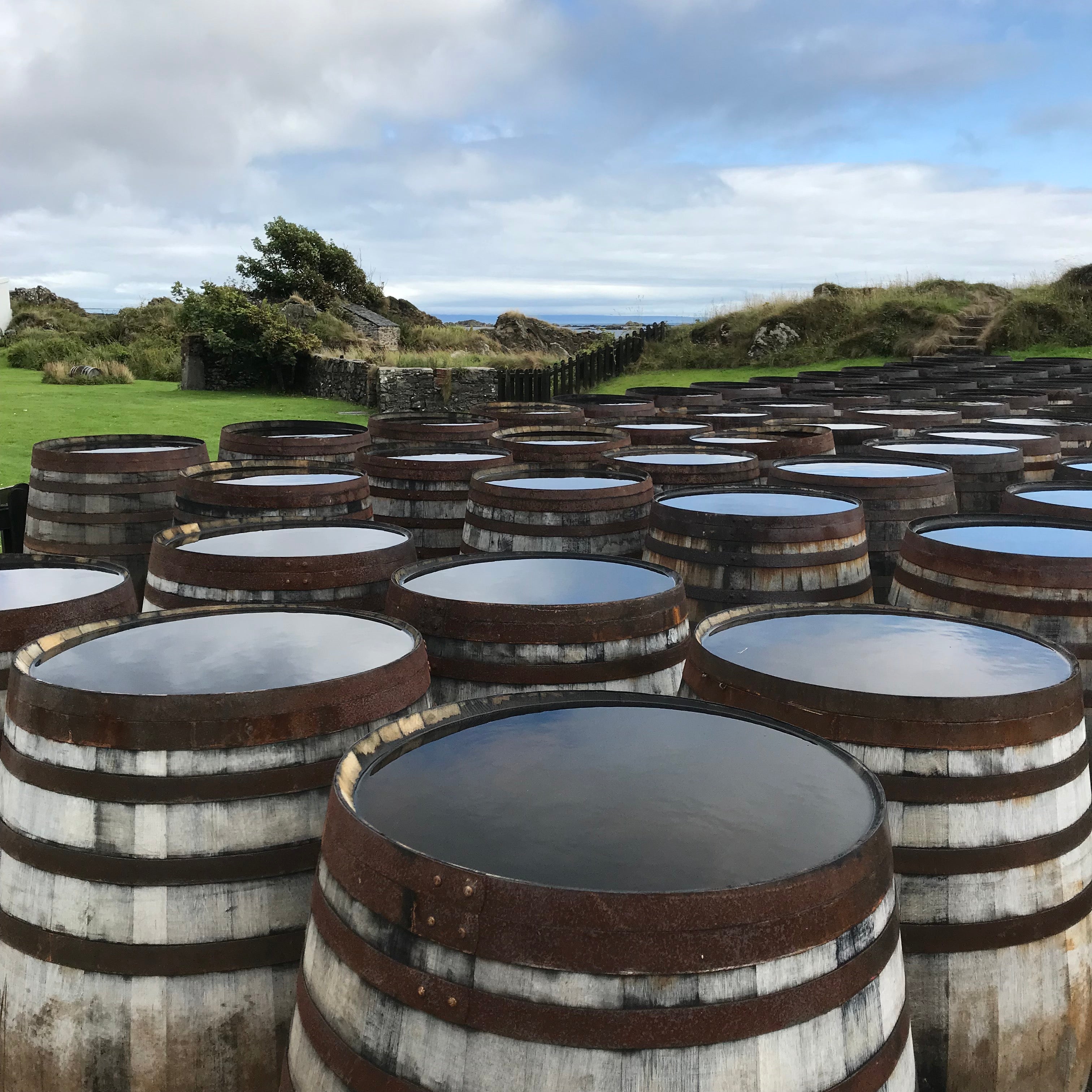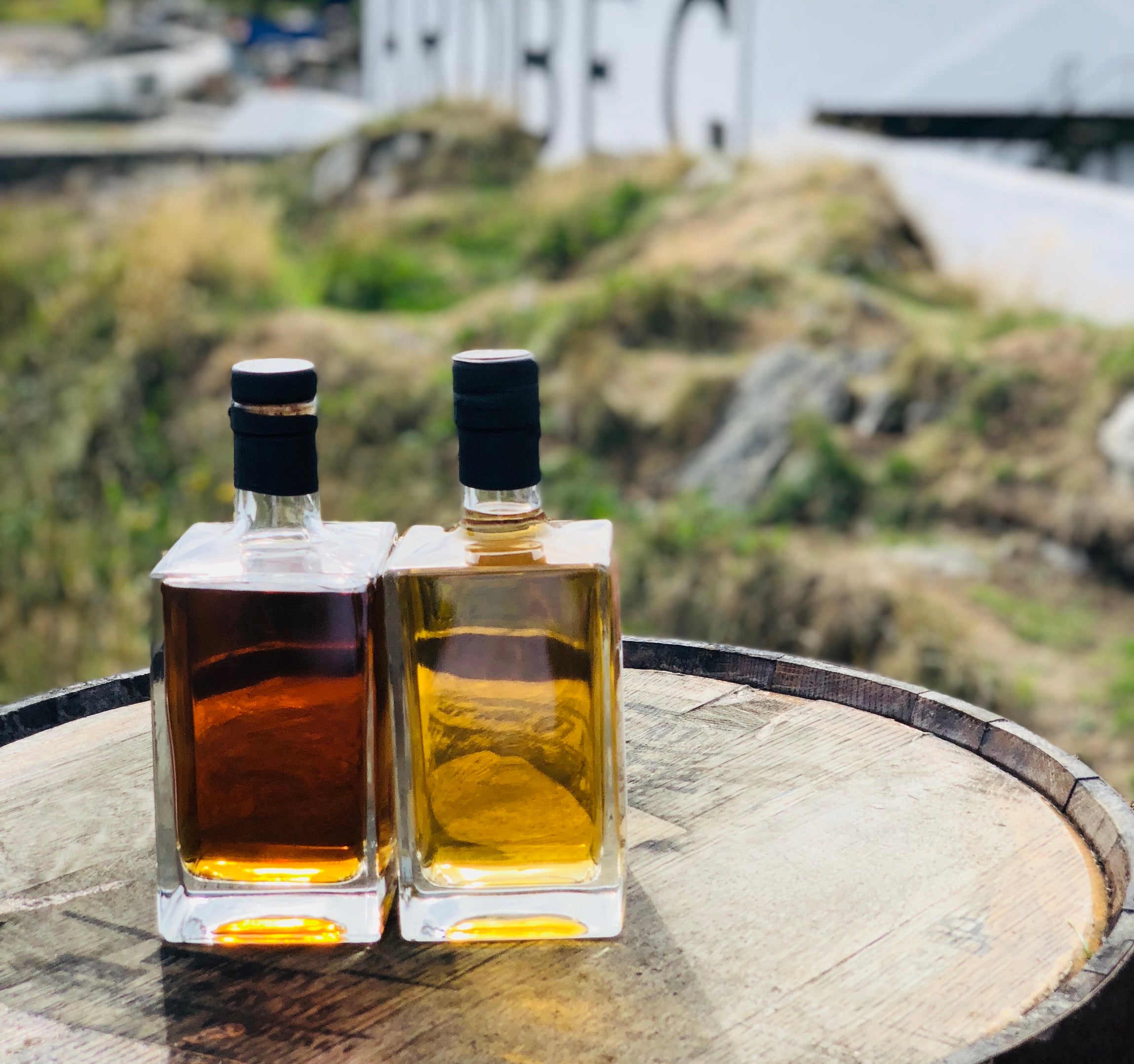
How Water Makes Your Whisky
Let’s talk about whisky and water. It’s a controversial issue, but I’m not interested in controversy today. I want to talk about an irrefutable fact. Without water, there is no whisky. It’s the water of life after all. The clue is in the name. When we answer the question, how does water make whisky, we’re talking about how you need water to make whisky.
Let’s look at the question from two sides.
First, how water is used in whisky production and second, how water is added to whisky after the fact.
Water and Whisky Production
Water is used in the first step of whisky production: malting. Malting starts by taking grains and immersing them in water. Then, they blow air over the wet grain to help the embryos develop. This process begins germination. Germination activates the grains so you can start making whisky.
After malting comes mashing. Mashing takes place in a mash tun. Hot water induces natural enzymes to break down starch into fermentable sugars. The sugars and enzymes are washed out using more hot water. They’re filtered out through the sieve-like base of the mash tun to produce a sugar water called wort.
Water also plays a vital role in cooling whisky after it’s been distilled.
And let’s not forget the most essential role water plays in a distillery: making tea.
Adding Water After Distillation
Before bottling whisky, a lot of distilleries reduce the alcohol volume by adding water. They can’t reduce the alcohol below 40% for scotch so the whisky you find on the shelves can be anywhere between 40% and 65%.
You know a distillery hasn’t added water to the whisky before they bottle it if it’s labelled ‘cask strength’.
Cask strength whisky goes straight from the cask and into the bottle. We don’t add any water to our whisky before we bottle it, which is why our ABV can be high. Our Royal Brackla 11 year old, for example, has 60.9% alcohol.
While distilleries can add water before they bottle it, the biggest question is about adding water before you drink it. Let’s avoid this contentious question for now. But, if you’re interested, we’ve got a blog making a case for and against having your whisky with ice.
Does the Type of Water Matter?
Yes. You can’t use any old water for making whisky.
Process water is the stuff used for mashing and elsewhere in the production. This water has to be pure and clean, so it doesn’t have any negative impacts on the finished product. Reducing water, what’s added to lower the ABV, has to meet high standards because people will drink it.
The type of water is also important. Most Scottish malt distilleries use soft water. They also like water that has low salt levels. This helps keep the pH down and improves fermentation efficiency.
The sources of the water vary. Some distilleries use water that has an important province; it’s central to their story. A few distilleries buy their water source and the land around it, even when the loch, river or stream is miles away. The distilleries believe the local water creates and preserves their whisky’s flavour and character.
Why Not Add the Water Yourself?
With water being so crucial to whisky’s production, why not reduce the alcohol volume yourself?
We created The Final Cut to let you do that. The Final Cut gives you everything you need to add water to your whisky. Each kit comes with 100ml of whisky and water that has been locally sourced to enhance the whisky’s flavour.



Leave a comment
This site is protected by hCaptcha and the hCaptcha Privacy Policy and Terms of Service apply.